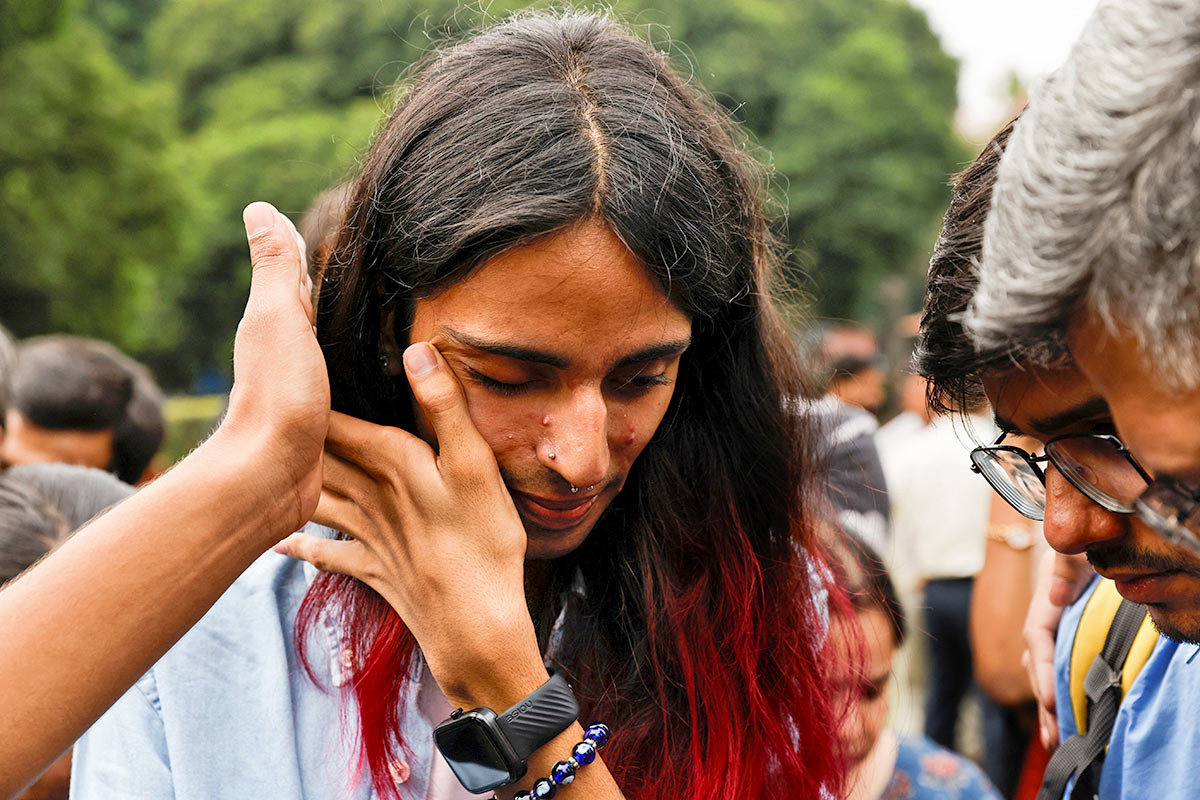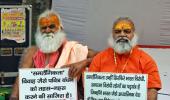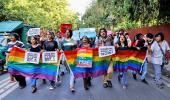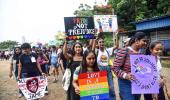'We can't leave this to Parliament; we are sure they (MPs) are not going to sensitise anybody.='

"When the violence (against those belonging to the LGBTQ community) comes from within the family and the difficulties many of us faced when we were forced to go back to our families was scary; that is something that they are going to stop and going to work about. That is something which is very positive," Ayaan, a member of the LGBTQ community from Bengaluru, tells Prasanna D Zore/Rediff.com.
Your response to the Supreme Court verdict on same-ex marriage?
When Section 377 was decriminalised, the Supreme Court directed Parliament and government bodies to sensitise (the public) about the (legal and civil rights of the LGBTQ) community, but that was not done.
Even five years after the judgment, we are struggling to make people understand as to what the community is, because when you talk about LGBTQ plus community, they refer to transgender people only. That sensitisation was never done.
Now that Supreme Court has directed it (same sex marriage) to Parliament, I am sure this is not going to happen anytime soon. But what we are interested in is the committee that the (Chief) Justice (Dr Dhananjay Yeshwant) Chandrachud was mentioning about.
We want our representation to be there, the LGBTQ community members to be a part of that committee, so that if we are in the system, at least we can make sure that we can talk about the various identities that we have, our gender identities, sexual orientations and everything.
That way, I think we can move ahead in educating and uniting society.
Do you see any positives and negatives for the LGBTQ community from the Supreme Court order?
The positive is that the transgender community will now have the right to marry any heterosexual person or a trans-woman or trans-man.
The negative is that they have not given us civil rights when it comes to adoption, when it comes to the other kind of civil rights that we were looking for. I think this is a long fight.
Going forward we have to ensure we get equal civil rights as any ordinary Indian citizen.
They (the Supreme Court judges ) quoted that marriage is not the end. That is what we are looking at -- how we can go ahead as a community and make sure that equal civil rights are given to us.
Were you and your partner hoping to see the Supreme Court legalise same-sex marriages?
We did not have much expectation, but they have gone way forward when Chandrachud read out that anti (LGBTQ)-discrimination laws should be in place.
I would like to mention that when the violence (against those belonging to the LGBTQ community) comes from within the family and the difficulties many of us faced when we were forced to go back to our families was scary; that is something that they are going to stop and going to work about. That is something which is very positive.
Were you planning to get married to your partner if the judgment had been in favour of the LGBTQ community?
Not me personally, but a lot of people I know were ready to get married thinking that it is going to be a positive one.
But since it is not in our favour, we will make sure that we will work towards this and we will make sure that these kind of rights are given to us. We will work towards equal civil rights and marriage equality as well.
How would this judgment change your life?
Not much would change, to be very honest.
As part of the LGBTQ community we can take this as a positive change because of the directions given by the Chief Justice. We will work closely with the (LGBTQ) community and also the (civil) society because we cannot leave this to Parliament. We are sure they (MPs) are not going to sensitise anybody.
We as a community and NGOs that we have in the community, we will come forward, work together, come up with a plan.
We'll do sensitisation workshops and make sure that our voices reached out to all these Parliamentarians and politicians.
Would you have any plans for positive advocacy in every constituency?
Absolutely. We are already doing workshops and programmes to sensitise civil society about LGBTQ rights in Karnataka, but we have to look at various other states as well.
We have to get in touch with them (the LGBTQ community from other states) and understand what their plan of action is and only then we can come to a conclusion.











 © 2025
© 2025